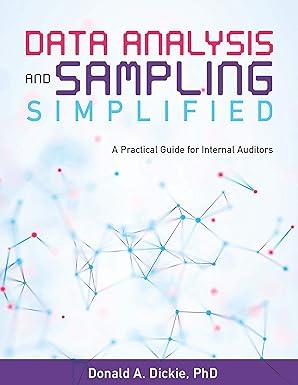Question
Problem 10A-10 Comprehensive Standard Cost Variances [LO10-1, LO10-2, LO10-3, LO10-4] Wonderful! Not only did our salespeople do a good job in meeting the sales budget
Problem 10A-10 Comprehensive Standard Cost Variances [LO10-1, LO10-2, LO10-3, LO10-4] "Wonderful! Not only did our salespeople do a good job in meeting the sales budget this year, but our production people did a good job in controlling costs as well, said Kim Clark, president of Martell Company. Our $20,825 overall manufacturing cost variance is only .5% of the $4,165,000 standard cost of products made during the year. That's well within the 3% parameter set by management for acceptable variances. It looks like everyone will be in line for a bonus this year." The company produces and sells a single product. The standard cost card for the product follows: Inputs (1) Standard Quantity or Hours (2) Standard Price or Rate Standard Cost (1) (2) Direct materials 3.50 feet $ 4.30 per foot $ 15.05 Direct labor 2.2 hours $ 9 per hour 19.80 Variable overhead 2.2 hours $ 2.20 per hour 4.84 Fixed overhead 2.2 hours $ 4.50 per hour 9.90 Total standard cost per unit $ 49.59 The following additional information is available for the year just completed: The company manufactured 20,000 units of product during the year. A total of 69,000 feet of material was purchased during the year at a cost of $4.50 per foot. All of this material was used to manufacture the 20,000 units produced. There were no beginning or ending inventories for the year. The company worked 45,500 direct labor-hours during the year at a direct labor cost of $8.85 per hour. Overhead is applied to products on the basis of standard direct labor-hours. Data relating to manufacturing overhead costs follow: Denominator activity level (direct labor-hours) 40,000 Budgeted fixed overhead costs $ 180,000 Actual variable overhead costs incurred $ 113,750 Actual fixed overhead costs incurred $ 177,100 Required: 1. Compute the materials price and quantity variances for the year. 2. Compute the labor rate and efficiency variances for the year. 3. For manufacturing overhead compute: a. The variable overhead rate and efficiency variances for the year. b. The fixed overhead budget and volume variances for the year. (For all requirements, indicate the effect of each variance by selecting "F" for favorable, "U" for unfavorable, and "None" for no effect (i.e., zero variance). Input all amounts as positive values.)
Step by Step Solution
There are 3 Steps involved in it
Step: 1

Get Instant Access to Expert-Tailored Solutions
See step-by-step solutions with expert insights and AI powered tools for academic success
Step: 2

Step: 3

Ace Your Homework with AI
Get the answers you need in no time with our AI-driven, step-by-step assistance
Get Started


